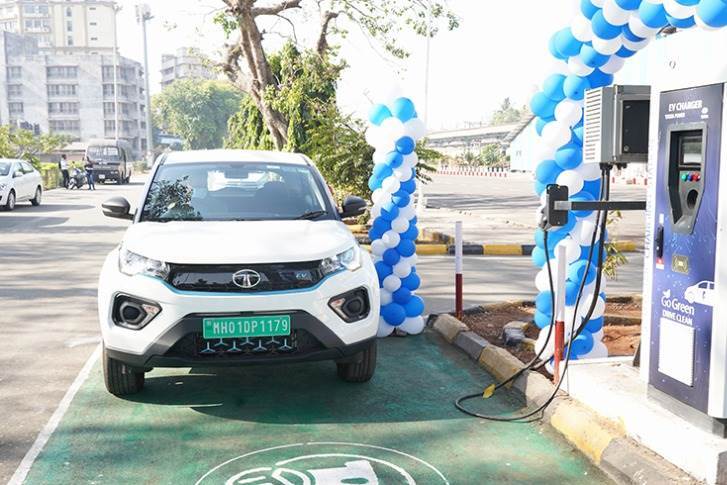Tata Motors, which closed FY2021 on a high with total passenger vehicle sales of 222,025 units, up 69% year on year (FY2020: 131,196), has another reason for cheer. The Tata Nexon EV, currently the best-selling electric passenger vehicle in India, has driven past the 4,000-unit mark.
Launched on January 28, 2020, the eco-friendly compact SUV has seen rapid consumer acceptance. It had crossed the 1,000 mark on August 18, seven months after rollout, the 2,000-unit mark in 10 months on December 2, 2020, and has now crossed the 4,000 mark by end-March 2021, 14 months after launch.
Not surprisingly, the strong market performance of the Nexon EV has contributed to Tata Motors recording its highest-ever sales of EVs for both March 2021 and Q4 FY2021. According to Shailesh Chandra, President, Passenger Vehicles Business Unit, Tata Motors, “The company registered its highest ever monthly and quarterly sales of 705 EVs and 1,711 EVs in March 2021 and Q4 FY2021. The Nexon EV, the highest sold EV in the country, crossed the milestone of 4,000 units, since its launch in January 2020.”

Making an eco-friendly difference
With its compelling value-proposition, the Nexon EV has emerged as the best-selling electric car in India. Currently, Tata Motors is leading the EV segment with a 64% market share. On March 23, the Tata Nexon EV was voted the ‘Green Car of the Year’ at the 2021 Autocar Awards.
What has worked in the Nexon EV’s favour, besides its SUV appeal, are its sorted fundamentals and a value-for-money price tag that undercuts other EVs by over Rs 700,000. In the past year, Tata Motors has tweaked certain aspects of the vehicle after analysing the driving behaviour of several EV users, and incorporated relevant customer feedback in its latest software update to make the Nexon EV’s drive experience smoother and the car more user friendly.
While this EV commands a hefty premium over the ICE versions, factor in the government subsidies and its extremely low running costs and it will begin to make financial sense. The Tata Nexon EV’s ARAI-certified range stands at 312km on a single charge, which is calculated using fixed parameters under urban driving conditions. In Autocar India tests, it achieved 208km in a mixed city-highway driving cycle. A higher degree of regeneration while driving in the city resulted in an urban range of 216km, whereas on freer roads with the motor constantly working with less regeneration, the highway range stood at 201km on a full charge.
To accelerate the adoption of EVs in India, Tata Motors also introduced a holistic e-mobility ecosystem called ‘Tata uniEVerse’ to closely leverage the strengths and experience of other Tata Group companies to create a viable EV environment. This enables consumers to get access to a suite of e-mobility offerings including charging solutions, innovative retail experiences and easy financing options.
Meanwhile, in association with Tata Group company Tata Power, Tata Motors has established a robust process towards installing a home-charger at the residence of every Nexon EV customer. Tata Power also has the largest network of CCS2 fast chargers (compatible with Nexon EV). Till date, Tata Power has set up more than 400 charging stations in 65 cities and on several prominent intercity routes across India. It is planning to scale this up to 700, across most major cities and highways by December 2021.
ALSO READ: Tata Nexon EV review, road test
The truth behind the Tata Nexon EV range controversy
Autocar Professional’s Man of the Year 2020 is Tata Motors’ Shailesh Chandra
/news-national/tata-nexon-ev-crosses-4-000unit-sales-in-14-months-78873 Tata Nexon EV races to 4,000-unit sales in 14 months India’s best-selling electric PV sees growing demand even as Tata Motors registers its highest ever EV sales in both March and Q4 of FY2021. https://www.autocarpro.in/Utils/ImageResizer.ashx?n=http://img.haymarketsac.in/autocarpro/c824cfb4-47a6-4293-bf4e-2ed8ac01521c.jpeg
